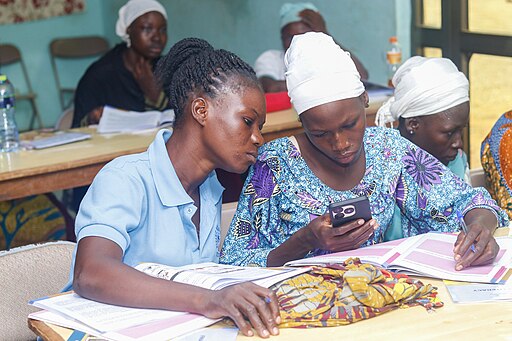For thousands of farmers in the Philippines, climate change poses a significant threat to their livelihoods. Rising temperatures and unpredictable rainfall are leading to lower crop yields of staple foods like maize and sugarcane. Extreme weather events, such as typhoons, are expected to disproportionately affect the agricultural sector, impacting productivity and food security. Adapting to climate change is a crucial challenge for the Philippine government.
While the challenges are daunting, mobile phones could be a powerful tool to help vulnerable groups like farmers mitigate the impacts of climate change. During the COVID-19 pandemic, the government provided cash transfers to low-income Filipinos through mobile money accounts. Similar mechanisms could be used to provide instant financial assistance to those affected by climate change disasters. Mobile money can also offer access to insurance products to help farmers cope with the effects of climate change events.
Despite the benefits of digital payments infrastructure for climate change adaptation, few National Adaptation Plans of developing nations mention digital payments. To address this gap, researchers initiated a project to explore the linkages between digital payments and climate change adaptation and how governments can prioritize and incentivize their use.
Digital payments can help individuals adapt to climate change by reducing vulnerability and increasing readiness. Vulnerable groups benefit from reduced transaction costs, enabling them to receive more financial support during crises. Digital payments also provide access to insurance products and financial institutions, improving financial literacy, savings, and access to credit. Additionally, they help bridge the gender gap by providing women with access to banking and financial services.
By enhancing early warning systems, improving social protection mechanisms, and increasing institutional efficiency, digital payments can improve governments’ ability to respond to climate change disasters. Government-to-person payments enable instant humanitarian aid distribution, enhancing resilience. Leveraging forecast-based financing can improve outcomes for recipients. Additionally, digital payments can enhance public transparency, reduce corruption, and expand data collection and sharing opportunities.
Through case studies in countries like the Philippines, Bangladesh, Ghana, Colombia, and Rwanda, researchers found that digital payments can enhance social protection programs, index insurance systems, and digital governance strategies to address the impacts of climate change. By integrating digital payments into climate change adaptation strategies, countries can reduce vulnerability and improve their readiness to respond to climate-related disasters.
While progress towards expanding digital payments for climate change adaptation has been made, there is still much to be done, especially in emerging economies. Digital payments offer a crucial pathway to reducing vulnerability and enhancing government readiness in adapting to the impacts of climate change.






